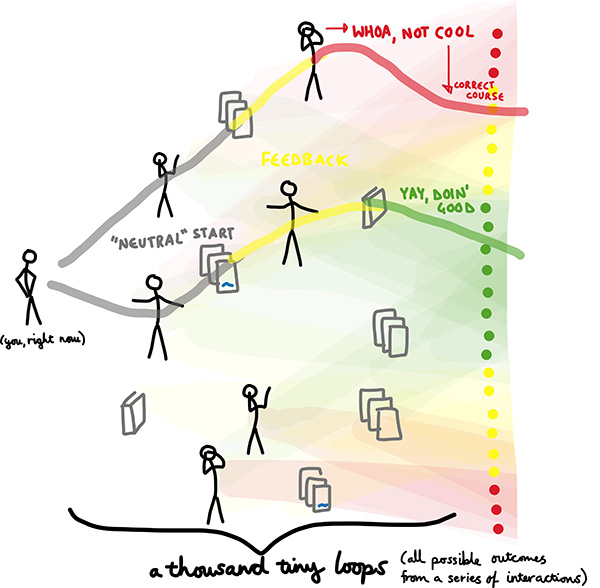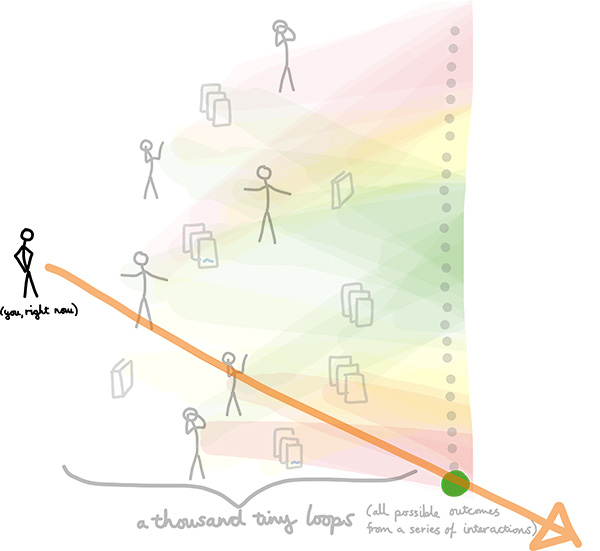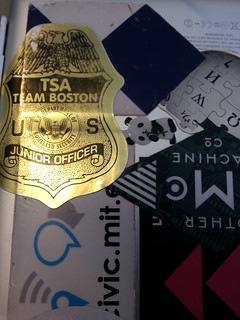editor’s note: While this entry was initially posted as password-to-view in September of 2014, I made it publicly viewable on April 22nd, 2016. I did this because 1) the court case with Diggz is now settled and GWOB is the rightful owner of its collateral, 2) I had made it clear that Diggz should only ever contact me again if he had gone through an abuser- or substance-abuse-recovery program. He violated this boundary a few months ago, and while I don’t have the bandwidth to take legal action against him, 3) I am in a stable enough place that I feel like I can cope any potential fallout from this. I do not want this to become A Big Thing, I’m just wanting to be sure my truth is in the public record.
I really hadn’t wanted to write this. This is one thing I really didn’t want to have to learn in public about. Because it’s without the consent of all involved. It’s not giving props to someone. But it’s been terrible, and now have people and something I care deeply about under attack. Obviously, this is the story of one person, and I’m sure it differs from other takes. Get those stories if you can, discretely, and be sure you’ve read to the end before doing so, so you can understand my concerns. Here goes.
When we tell the story of Geeks Without Bounds, it’s always about Diggz talking about (then) Geeks Without Borders at Gnomedex, right after my speaking about Transhumanism, and us sitting down to lunch together and talking about how to actually make it happen. He helped be sure it could be funded through Tropo, which is an organization full of incredible and gifted people. We went on tour to ask people in hacker and maker spaces what they would want to see out of an organization like GWOB, how they would want to help the world be a better place. It was a month on the road after just meeting someone, and we didn’t talk for 3 months afterwards.
Part of that was because there were attentions he directed at me, which I very clearly indicated were unwelcome. Hotel rooms with shared beds (an issue I’ve never experienced discomfort with, when involving friends, near-strangers, unstated crushes, etc because most people in this world understand that “not interested” transfers to the whole shebang, not just the current thread of interaction) became uncomfortable after boundaries were drawn but not-quite-respected. He dropped it, but brooded. I was just glad to be home.
After a few months had passed, we picked things back up. We wanted to keep building GWOB. But an unhealthy trend formed: about once a quarter, Diggz would indicate interest. I would decline, and we would have long, heart-felt conversations about relationships, love, desire, etc. He seemed to be getting a lot from the conversations, growing, being accepting (as proven by his change in attitude around non-heteronormativity). But always, a few days later, I would get explosive phone calls and emails about how everything in the set up wasn’t working, that he was going to fix it, that I needed to get out of the way or be run over, that he was going to pull funding. At first, I would be upset – what was he talking about?! How dare he act so arbitrarily. But this was also accompanied by his pulling hard with me for the thing we both cared about, and getting it funded, and supporting my broke ass while all that was being worked out. I realize in writing this just how abusive this is.
Eventually I saw the pattern, and tried to broach the subject with him. It wasn’t me being narcissistic, it was clearly response to his being turned down. He had none of it. I finally took the matter to the person connected to our joint endeavor. I had written a letter to Diggz’s superior, and I wanted solidarity in sending it off, honest feedback on how it might land. Instead I got a “I will take care of this” – exactly what I didn’t need. Getting shut out of my own restoration was infantalizing. I expressed as such, and was told I had dealt with enough already, and should let the person take care of it. I dropped it.
Just as upsetting to me about all this is not simply how I was treated, what these people thought was acceptable behavior — but also that I thought it was just par for the course. Which is is. But just as I experience righteous indignation when someone tells me a rule is upheld because “it’s policy,” I am outraged that they thought this was acceptable simply because it’s widely accepted.
Tired of the drama and constantly being in jeopardy, I set up a stand-alone non profit, filed all the paperwork, and asked that the name and collateral (trademark, domain, etc) be signed over to it (and so much love to the person who helped with this path). This would be less complicated. He did sign all the things, and it was less complicated. For a long time. Diggz pulled his funding, but stayed nominally involved. The transition of assets was slow, but forthcoming. There were a few loose ends, but we were friends again, so it was ok. There weren’t the complications, we got to hang out in a way that didn’t have a power struggle in it, and he’s honestly a good friend in those circumstances (this is why it’s so hard for even those close to an abuser to see that they can be so awful to others). There were still moments of “heyyyyy” when he had been heavily drinking, but those can dealt with, despite it not being ok.
GWOB evolved, and Lindsay and Lisha became the main carriers of it. I was doing work at Civic and Berkman, related to GWOB, but I was now focusing more on the work itself rather than the maintenance of GWOB as an entity. We had internal turmoil, but always with each others’ best interests in mind. Lisha stepped into the role of executive director for a multitude of reasons, and we updated the advisors, and the teams, and the website, etc.
While this was happening, Diggz was going through some rough times. He claims to have been blacked out while he sent me pornographic messages regularly over a week. I finally got tired of talking to him in the mornings about what he was going through, and told him he needed to see a therapist before I’d be willing to talk to him at all. He messaged me a short time later to indicate he’d gotten sorted out, and was ok again.
At the beginning of a very long series of trips for me, Diggz finally read some emails about role transition at GWOB and flipped his shit. The night before I gave a keynote, he kept badgering me about giving GWOB back to him, that Lisha was going to ruin everything, etc. I asked him for space, he didn’t listen. I insisted on space, he didn’t listen. And I finally snapped. I informed him that I was going to block him on every platform, and if he attempted contact, I would file charges.
And then, as always with a turn-down on advances or shutting down of aggression, there was a period of strange calm followed by an explosion. Which is what his happening on Twitter and Facebook right now. But this time, it’s worse. One of those last threads from collateral transfer was the domain registration. Which he used to get to our servers. Which he then nuked, cascading to ability to use email. Which disrupted work, AND is just an awful thing to do.
So now we’re figuring how legal courses – can we talk about this online? Defamation suits are winnable if you’re telling the documented truth (which we are), but still expensive. So I can’t talk about this in public. And I have to ask you not to talk about specifics online for the same reason. Getting the domain back will either entail either his agreeing to hand it over, or going through expensive channels of domain contestation.
I’m tired. We’ve got other shit to do. It’s upsetting to me that his desire to control a thing (I assume to make it awesome?) is what is currently messing it up. So. That’s where things are.
 It is now easily one of my favorite large social experiences. Music, art, and story were woven throughout the conference, all evoking self-reflection on our role in the path the world takes. It was already populated by some of my favorite people in this space (the aforementioned case, plus ben, jden, kawandeep, etc), and the textcapade starting weeks in advance, recieving letters from another character in the story by mail, all playing through these struggles, had me jazzed up long before the event.
It is now easily one of my favorite large social experiences. Music, art, and story were woven throughout the conference, all evoking self-reflection on our role in the path the world takes. It was already populated by some of my favorite people in this space (the aforementioned case, plus ben, jden, kawandeep, etc), and the textcapade starting weeks in advance, recieving letters from another character in the story by mail, all playing through these struggles, had me jazzed up long before the event.


 I waited. And waited. My flight began to board. I was still on the other side of security. Finally, I went to the airline desk and told them what was going on, and they changed the name on the ticket to match the ID I had on hand. I made my flight. I’m not sure if the airline did a legal thing, so I’m not naming them, but holy shit am I grateful.
I waited. And waited. My flight began to board. I was still on the other side of security. Finally, I went to the airline desk and told them what was going on, and they changed the name on the ticket to match the ID I had on hand. I made my flight. I’m not sure if the airline did a legal thing, so I’m not naming them, but holy shit am I grateful.